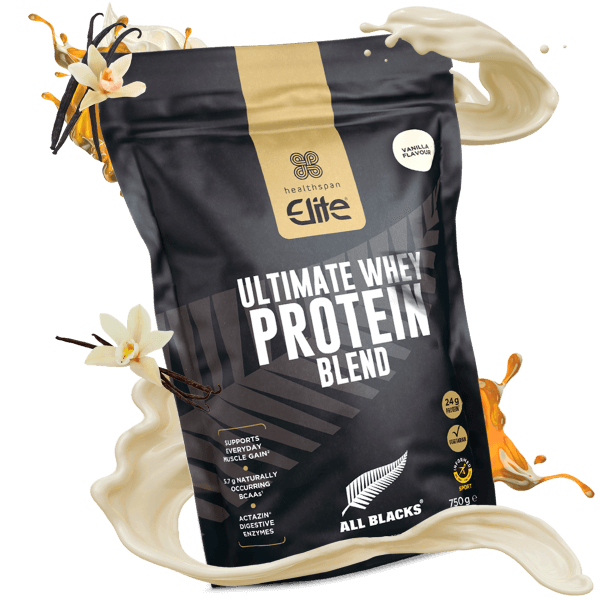The symptoms of menopause affect wellbeing and, in the case of masters athletes, have the potential to impact performance. They can also make it more of a challenge for women looking to engage in endurance sports for the first time later in life.
The symptoms of menopause vary amongst women, including hot flushes, mood changes, disrupted sleep, anxiety, excessive sweating, and weight gain.
Menopause is a natural occurrence in a women's lifespan that cannot be ignored. However, understanding the role of diet and lifestyle can help women make changes to their nutrition and training strategies to accommodate these symptoms' effects. Dietary changes can also help strengthen women's bodies in ways that help protect against injury when exercising at a high intensity in later life. This includes maintaining bone density and muscle mass, energy levels, and overcoming mental health issues.
The bottom line is that menopause should not be viewed as a barrier preventing you from achieving your sporting goals, but something that can be managed to help maintain performance.
How can diet help?
The loss of oestrogen is responsible for many of the symptoms associated with menopause, but adopting a diet that is composed of unprocessed foods may help. This means eating foods in their most natural state. Many of these foods contain plant compounds called phytoestrogens, which behave similarly to oestrogen but with a fraction of the effect. Eating a diet rich in these foods may help to alleviate milder symptoms. Aside from this, a diet rich in these foods can help you maintain a healthy weight and protect your heart health, as disease risk increases in the absence of oestrogen.
Focus on foods such as beans, pulses, lentils, whole grains, fruit, nuts, and seeds. Soy foods are particularly rich in plant oestrogens and can be a valuable addition to the diet. Try switching to soya milk, and you can use tofu (available in a marinated form that's much easier to use) in meals such as stir fries, or scrambled for breakfast.
Soy foods have had their fair share of controversy, especially concerning breast cancer. However, including soy foods in the diet in moderation is safe for women who are at greater risk or have experienced hormone receptor-positive breast cancer.
How can protein help?
Menopause incurs a more rapid decrease in muscle mass, which can be detrimental to performance. Maintaining muscle mass helps keep you strong and preserves bone density, which in turn can help prevent injury. Aside from this, having a higher muscle mass to fat ratio also helps to maintain a healthy metabolism, which can benefit weight maintenance.
Try to aim for 1.2-1.4g protein per kg of body weight. To promote muscle protein synthesis after training, aim for 25g of protein; it's often most convenient to get this through a protein shake. The remainder of your protein should be spread throughout the day, by including some with every meal.

Elite All Blacks Ultimate Whey Protein Blend
Protein powder co-created with the All Blacks
- 24g protein per serving to support muscle growth
- Added protease to break down protein for better absorption
- Available in vanilla, strawberry and chocolate. Low in sugar
How can you maintain your weight?
Maintaining body weight may become more of an issue during and beyond menopause, and it's not uncommon for fat to accumulate more around the middle at this stage of life. Periodised eating is an excellent approach to help you manage this: it involves manipulating your carbohydrate intake to match your training schedule.
Energy needs will vary daily depending on your activity level, so it makes sense to eat less on rest days. During these days, you may want to decrease your intake of carbohydrates at breakfast and lunch to reduce your energy intake. Your evening meal should be the time to eat your carbohydrate meal to help replenish glycogen stores for a training session the following day. Be sure to maintain a good protein intake across rest days to support muscle repair and maintenance.

Menopause should not be viewed as a barrier preventing you from achieving your sporting goals, but something that can be managed to help maintain performance.
What foods should you avoid?
Some components of the diet may aggravate symptoms of menopause, so you should consider these. Caffeine, alcohol, and spicy foods may exacerbate symptoms such as hot flushes, night sweats, and mood swings as they dilate the blood vessels bringing heat to the skin's surface. Excess alcohol can also put pressure on the liver, which is responsible for removing oestrogen from the body.
These dietary components do not need to be cut out entirely, and women react differently. If you are struggling with symptoms of menopause, then try cutting them out to see if they help with symptoms. You can then work out your tolerance with respect to symptoms by adding them back in gradually if you want to keep them in your diet.
On a side note, if you struggle with night sweats, then be sure to always wear loose-fitting pyjamas instead of sleeping naked. Keep your bedroom cool by opening the window and shutting the curtains on hot and sunny days.
How does menopause affect your bone health?
Protect your bone health as a priority, as menopause can lead to a more rapid loss of bone density. Low bone density can put you at greater risk of injuries such as fractures. This is particularly important for women at greater risk of osteoporosis, including those with a family history of the condition, women diagnosed with RED-S (from inadequate energy intake) earlier in their sporting career, or those who have maintained a very low body weight through adulthood.
You can help preserve your bone density by including plenty of calcium-rich foods in your diet, such as dairy foods, green leafy vegetables, pulses, nuts, and seeds (3-4 servings daily). If you are consuming dairy alternatives, make sure they are fortified with calcium.
Vitamin D is also imperative, and during the winter months, a supplement is recommended as we get less exposure to the sun: the primary source of this nutrient. Women with low bone density may be advised to take a calcium supplement alongside vitamin D for the entire year.
During menopause, it is helpful for women to understand how they can adapt their diet to help alleviate some of the symptoms that occur. These dietary changes can also help improve and maintain other areas of their health that can impact performance, such as bone health, muscle mass, and weight maintenance.







